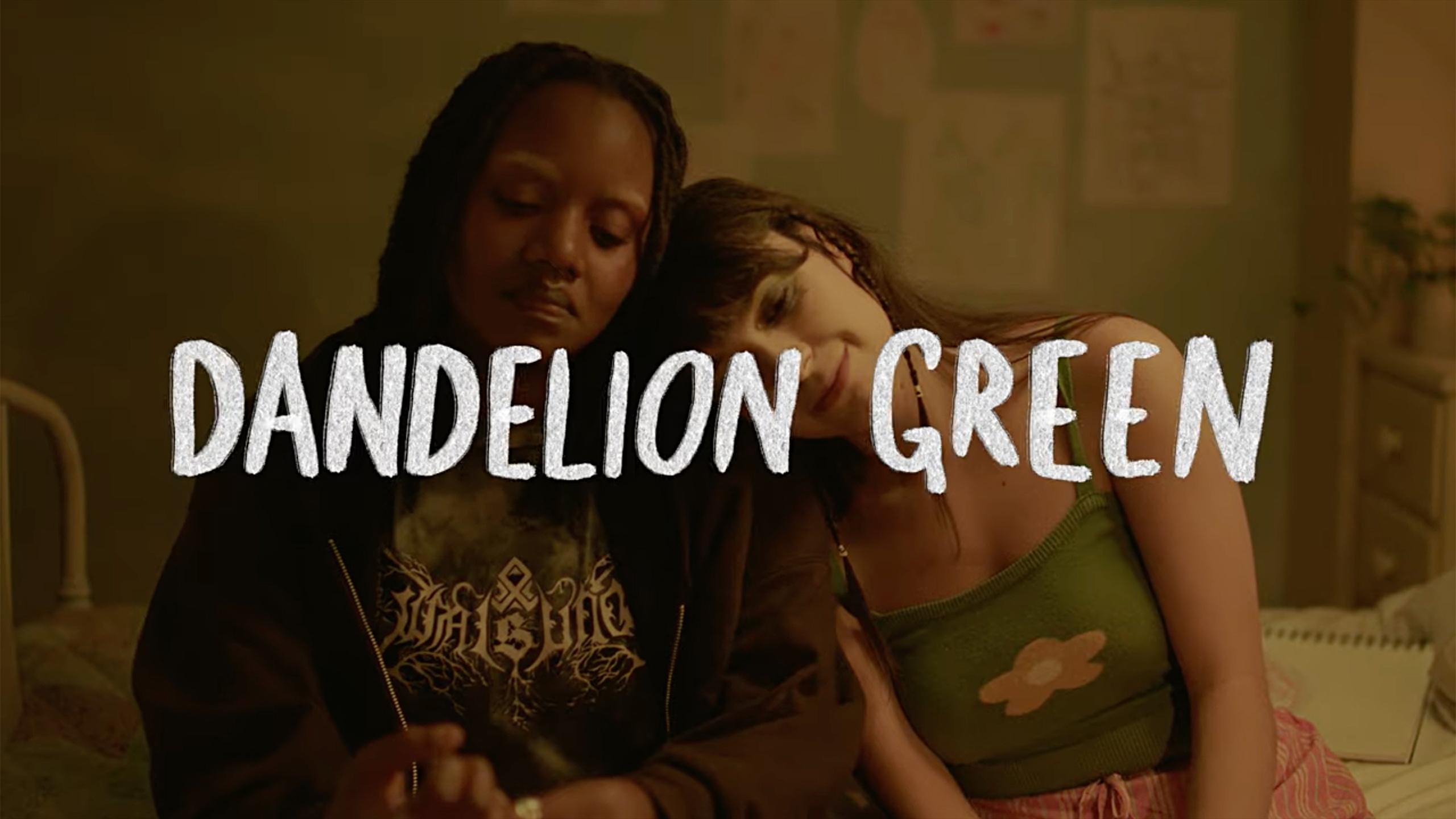By Julia Lawrence
If you’ve ever felt lost, don’t understand the five-year plan, or known the difficulties of creating meaningful friendships, Babyteeth Productions’ short film Dandelion Green will leave you feeling comforted and understood.
The film showcases the bitter and realistic aspects of what it’s like to be in foster care, dealing with physical violence, caseworkers, the impact of being in and out of the system due to parental behaviours and much more.
But Dandelion Green doesn’t just show the negatives of growing up, it also embraces the value of finding friends who understand you and encourage you.
Babyteeth Productions is made up of students who graduated from Toronto Metropolitan University’s media production program in 2022.
Kathleen Burgess serves as director and co-editor, Maria Barr as writer and co-editor, Olivia Solo as producer, Daniela Lasso-Neufeldt the director of photography and technical lead, Samantha McNulty as audio lead and Abigail Chevalier as the art director.
The narrative follows the lives of Kay Murad (played by Liz Ariho), a non-binary teen about to turn 18 and age out of the foster care system and Olivia Marquez (Cian Boyd), a 16-year-old artist who often goes in and out of the system due to her mother’s mental illness.
The two share moments of vulnerability and intimacy throughout the film, like when Marquez shares her aspiration of being an artist, Murad expressed their goal of living a life where they are in charge. Having bonded over shared experiences in the foster care system, the two share a deep respect that enables them to care for each other in their platonic friendship.
“Just as their experiences in the foster care system do not define them, neither do their queer identities”
Queer identity is just one of the many topics explored in this coming-of-age story.
“We believe that it’s important that stories of queer characters go beyond the traditional coming-out narrative,” the team described on their Indiegogo page. “Just as their experiences in the foster care system do not define them, neither do their queer identities.”
While some films may have the character’s queer identity at the forefront, the Dandelion Green team uses it as just one factor in the narrative. The characters are queer, but it’s not blatantly mentioned every time they talk to each other.
The main characters are inspired by stories collected from real-life foster kids and the team’s friendships growing up. Marquez and Murad’s friendship challenges the idea of what family and romantic relationships need to be.
As characters with complex stories, they exist at a crossroads of marginalized identities. They embody intersectionality in a way that is relatable to diverse audiences.
Although they both share similarities of always moving homes and feeling misunderstood by adults, they still have their unique interests and experiences.
Marquez wants to pursue art and Murad encourages her to achieve this goal, while Marquez also pushes Murad to strive for the independence they’ve craved. This narrative amplifies the message of embracing individuality and following your own path in life.
“I think it’s beautiful and something to be celebrated”
Barr said the team spoke with former foster kids, experts, social workers, foster parents and those with first-hand experiences in the system.
They also watched documentaries and podcast interviews that featured people in the system. Stepstones for Youth, an organization dedicated to helping foster youth navigate the difficult transition of ageing out, also acted as a sensitivity reader for their script before filming.
During the Q&A session of the film’s Toronto premiere in April, Barr expanded on the theme of queer friendships instead of queer romantic relationships. She said there is a grey area that queer people feel with friendships and romantic relationships. Barr hopes others can relate to the experience portrayed in the film that she’s gone through herself.
“I think it’s beautiful and something to be celebrated,” Barr said.
The 25-minute short seamlessly combines animation with live-action, impacting viewers with visual storytelling and sending goosebumps down their arms as they watch sequences of the characters run freely with their system records or display acts of emotional vulnerability when talking about each other’s parents.
The film also uses animated drawing sequences to provide euphoric and intimate feelings and reflect the range of emotions the characters feel, without producing an overly cinematic feel that takes away the storyline’s authenticity. These animations represent Marquez’s art, creating a sense of surrealism in something that is genuine and tangible in the film.
Dandelion Green leaves the two on screen with Murad and Marquez feeling hopeful and inspired to start a new chapter in life despite the previous challenges of abuse and neglect they felt in the foster care system.
Since Dandelion Green’s premiere, it opened at the 2022 Femme Fatale Film Festival in Toronto on June 17 and screened at the 34th annual Vancouver Queer Film Festival on Aug. 13. The film was also nominated in the summer season of the Montreal Independent Film Festival.










Leave a Reply